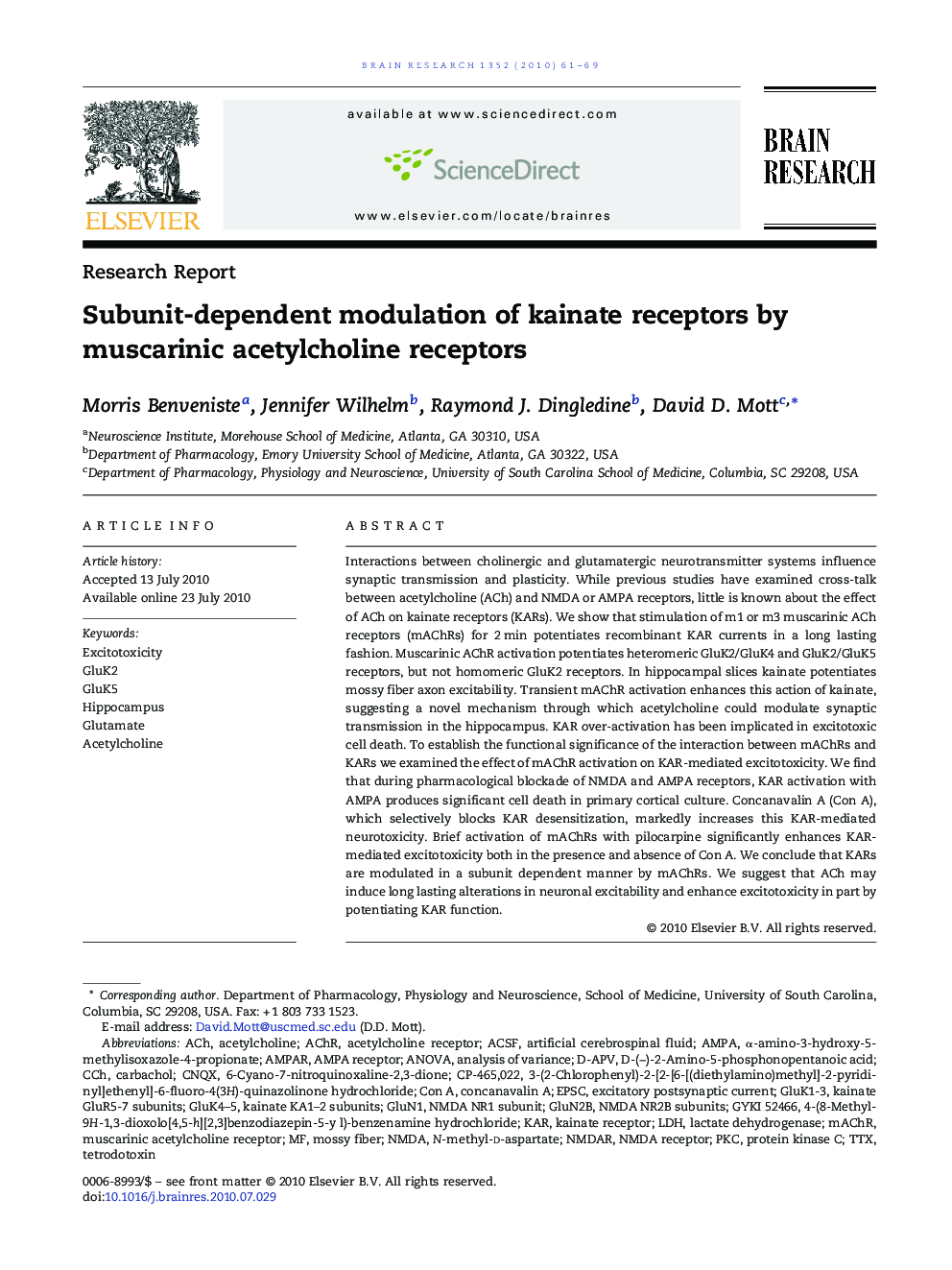| کد مقاله | کد نشریه | سال انتشار | مقاله انگلیسی | نسخه تمام متن |
|---|---|---|---|---|
| 4326547 | 1614087 | 2010 | 9 صفحه PDF | دانلود رایگان |

Interactions between cholinergic and glutamatergic neurotransmitter systems influence synaptic transmission and plasticity. While previous studies have examined cross-talk between acetylcholine (ACh) and NMDA or AMPA receptors, little is known about the effect of ACh on kainate receptors (KARs). We show that stimulation of m1 or m3 muscarinic ACh receptors (mAChRs) for 2 min potentiates recombinant KAR currents in a long lasting fashion. Muscarinic AChR activation potentiates heteromeric GluK2/GluK4 and GluK2/GluK5 receptors, but not homomeric GluK2 receptors. In hippocampal slices kainate potentiates mossy fiber axon excitability. Transient mAChR activation enhances this action of kainate, suggesting a novel mechanism through which acetylcholine could modulate synaptic transmission in the hippocampus. KAR over-activation has been implicated in excitotoxic cell death. To establish the functional significance of the interaction between mAChRs and KARs we examined the effect of mAChR activation on KAR-mediated excitotoxicity. We find that during pharmacological blockade of NMDA and AMPA receptors, KAR activation with AMPA produces significant cell death in primary cortical culture. Concanavalin A (Con A), which selectively blocks KAR desensitization, markedly increases this KAR-mediated neurotoxicity. Brief activation of mAChRs with pilocarpine significantly enhances KAR-mediated excitotoxicity both in the presence and absence of Con A. We conclude that KARs are modulated in a subunit dependent manner by mAChRs. We suggest that ACh may induce long lasting alterations in neuronal excitability and enhance excitotoxicity in part by potentiating KAR function.
Research highlights
► Muscarinic AChRs produce a long lasting potentiation of kainate receptor current.
► Muscarinic potentiation of KARs requires the GluK4 or GluK5 subunit.
► Muscarinic AChRs enhance the KAR-mediated increase in axon excitability.
► Muscarinic AChR activation enhances KAR-mediated excitotoxicity.
► Muscarinic potentiation of KARs may contribute to hyperexcitability and cell loss.
Journal: Brain Research - Volume 1352, 17 September 2010, Pages 61–69